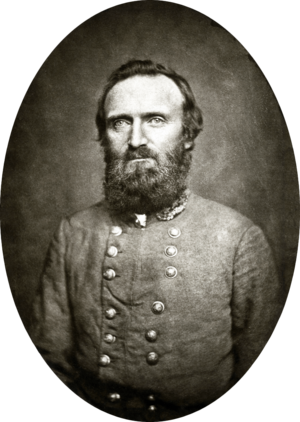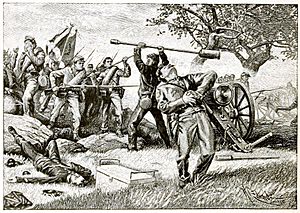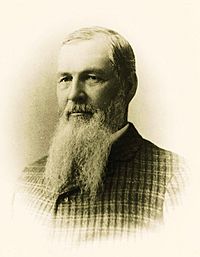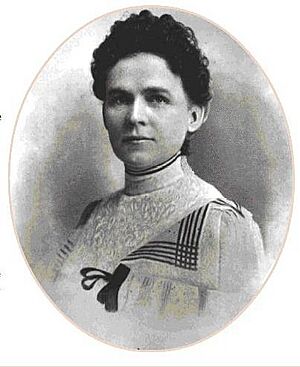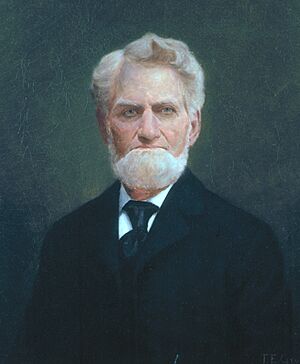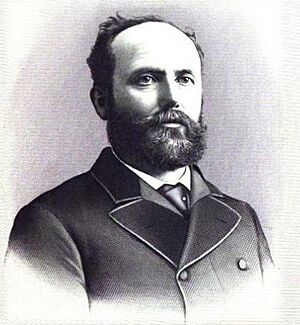Charles W. Turner (attorney) facts for kids
Quick facts for kids
Charles W. Turner
|
|
|---|---|
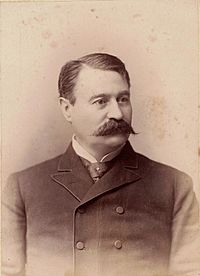 |
|
| Born |
Charles William Turner
June 8, 1846 |
| Died | January 7, 1907 (aged 60) |
| Cause of death | Gunshot |
| Resting place | Lake View Cemetery |
| Alma mater | Virginia Military Institute |
| Occupation | Lawyer |
| Years active | 1870–1907 |
| Known for | Adjutant General of Montana New Market Cadet |
| Political party | Democrat |
| Spouse(s) | Emma Armstrong |
| Children | Armstrong Memory Turner Charles William Turner, Jr. |
| Parent(s) | A. J. Turner Kate Aby |
| Signature | |
|
Charles W. Turner
|
|
|---|---|
| Allegiance | |
| Service/ |
|
| Years of service | 1861, 1864–1865 |
| Rank | Lieutenant |
| Unit | 5th Virginia Infantry, Co. L |
| Battles/wars | American Civil War |
Charles William Turner (born June 8, 1846 – died January 7, 1907) was an important lawyer who worked in Seattle and Montana. He also served as the Adjutant General of Montana.
When he was young, during the American Civil War, Charles Turner was a courier (a messenger) for General Stonewall Jackson. He was also one of the brave young cadets from the VMI who fought in the Battle of New Market. Later in life, he moved to Montana to practice law and explore mining. Charles Turner died in Seattle after being shot in a bar.
Contents
Early Life and the Civil War
Charles William Turner was born on June 6, 1846, in Stephens City, Virginia. His father, A. J. Turner, was a music professor. By the late 1850s, his family had moved to Staunton.
Serving in the Civil War
When the American Civil War began, Charles Turner joined the Confederate army. He served throughout the war and became a lieutenant.
With the Stonewall Brigade
Turner joined the army on June 9, 1861. He became part of the 5th Virginia Infantry, Company L, which was known as the "West Augusta Guards." This unit was part of the famous Stonewall Brigade, led by General Stonewall Jackson.
Charles Turner worked as a courier for General Jackson. This meant he carried important messages. He was with Jackson from July to August 1861, which included the time of the First Manassas.
Even at a young age, Turner showed great courage. During the Battle of Hoke's Run, a newspaper reported that "Little Charley Turner, a boy about 15 years of age, insisted so strongly on going with the Augusta Guards that his father finally yielded to his importunities and allowed him to go. The result shows that little Charley went to perform service, for he made one of the enemy bite the dust."
Joining VMI Cadets
On April 15, 1864, Turner enrolled at the Virginia Military Institute (VMI). He graduated from VMI in 1867.
Battle of New Market
Soon after joining VMI, Charles Turner and other cadets took part in the Battle of New Market. They were young students, but they were ordered to fight to fill a gap in the Confederate lines. The cadets helped the Confederacy win its last major victory of the war. They even captured a Union cannon. Turner was listed as "slightly wounded" in this battle.
Life After the War
After the Civil War ended, Turner worked in business in his hometown of Staunton and also in Baltimore. He was also a member of a group called the "Philomathesian Society."
Moving to Montana
Around 1869, Charles Turner moved to Montana. There, he became a lawyer. By 1870, he was living in Meagher County.
Mining Adventures
Turner became interested in mining because of the gold discoveries in Montana. Around 1875, he moved to Bannack. He had a setback when a major flood damaged his mining equipment, causing him to lose two years of earnings. This made him return to his law practice.
He also spent time in Virginia City. He was one of the lawyers who helped when the capital of Montana moved from Virginia City to Helena in 1875.
Life in Glendale
Later, Turner moved to Glendale. He was a leader in the local Democratic meetings.
Marriage
On September 11, 1879, Charles Turner married Emma Armstrong in Glendale. Emma was the daughter of Noah Armstrong. Their first son, Armstrong Memory Turner, was born in Glendale on July 25, 1880.
Living in Helena
Turner lived in Glendale until about 1886. He then sold his mining interests and moved to Helena. There, he joined a law firm called Kinsley & Turner. When he left, a woman named Ella Knowles Haskell took his place. She was the first woman to practice law in Montana.
Turner was also an active member of the Freemasons. His second son, Charles Jr., was born in Helena on April 20, 1889.
Adjutant General of Montana
In February 1887, Governor Preston Leslie appointed Charles Turner as the Adjutant General of Montana. Because of this, people often called him "General" Turner. He was the first person to hold this important position since 1867. The state militia (a group of citizen soldiers) was formed to help protect against conflicts with Native American tribes.
Turner described the militia as groups of volunteers who bought their own uniforms. They kept their weapons in special armories and met for drills. The state government helped pay for some of their expenses.
Later Years in Seattle
After the Great Seattle Fire, Charles Turner moved to Seattle, Washington. He continued his law practice there. He partnered with James B. Metcalfe, who was the first Attorney General of Washington state. Turner also worked with Andrew F. Burleigh, whom he had partnered with in Helena. Turner continued practicing law in Seattle until his death.
His Death
On January 7, 1907, Charles Turner was shot and killed in a saloon in Seattle. The person who shot him was targeting one of Turner's clients, Andy T. Russell. Turner was hit and died shortly after. The attacker then took his own life.
Funeral Service
Charles Turner was buried on January 10 in Seattle's Lake View Cemetery. Many people attended his funeral, which was led by the Knights Templars, a group he was a member of. His casket was covered with many beautiful flowers.


